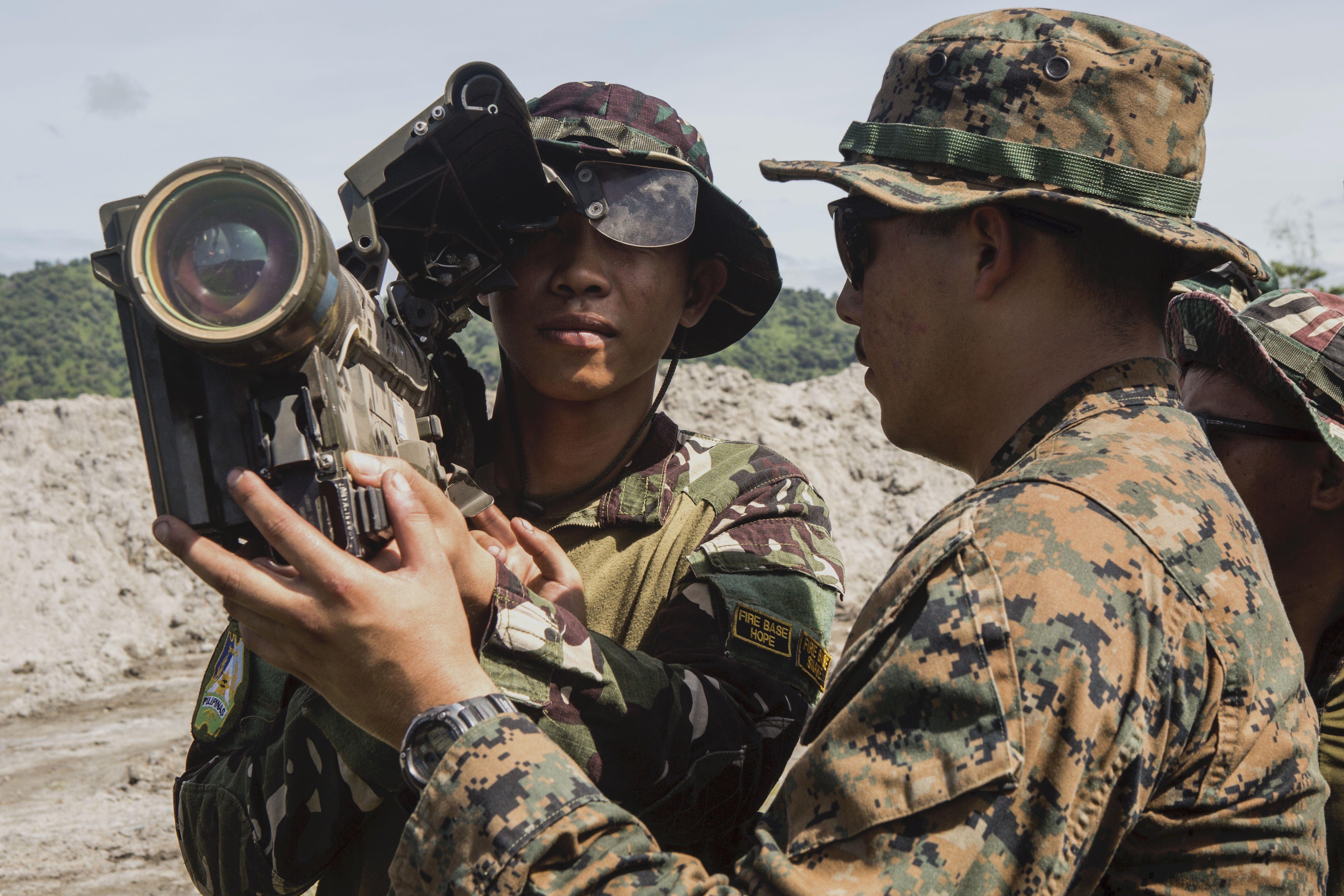
Topping the list in any review of the 70-year-old Mutual Defense Treaty between Manila and Washington is the need for a precise definition of what the United States’ commitment is to the republic in a crisis, the Philippines’ secretary of defense said today.
Delfin Lorenzana, in an online Center for Strategic and International Studies forum, said this lack of precise definition and the ups and downs of the relationship between the two nations since the Philippines’ independence in 1946 were among the reasons a rising China in the 21st century claimed Mischief Reef and Scarborough Shoal as its own territory in 2012.
He added the shoal is within his country’s Exclusive Economic Zone. But to back up its claims, China has been constantly harassing Philippine fishermen working the waters less than 200 miles from Luzon.
“Washington has become increasingly supportive” of the Philippines in its territorial disputes with China, starting in the Trump administration, Lorenzana said. “By and large, the Biden administration has followed in its footsteps.”
Even though Philippine President Rodrigo Duterte reversed course this summer on ending the Visiting Forces Agreement between the two nations, Lorenzana said there remains a “high degree of uncertainty” as to how committed the U.S. is to defending the Philippines – compared to its pledge to defend Japan.
“The Philippines got hand-me-down equipment” still in its inventory from World War II and Vietnam, as China has modernized its armed forces, armed fishing vessels and increasingly turned to “gray zone” tactics to split Manila and Washington, he said. Asked about increased cooperation between the two nations’ coast guards, Lorenzana said “we do not have [the ships] to operate seamlessly with other friendly nations” although it is participating in Western Pacific naval exercises.
“We need and desire modern, professional [military] services” to secure “our extensive maritime domain,” he said.
Lorenzana added that he has “long fought” for a review of the treaty, noting that after the Sept. 11, 2001 terrorist attacks on the U.S. and the Philippines’ own struggle with insurgents on Mindanao there was a strong security emphasis placed on counterterrorism. What is needed now is a look at the new realities of China’s territorial encroachment and its use of “gray zone” activities to disrupt Manila’s economy, politics and security.
Speaking in a panel after the secretary, Emmanuel Bautista, former chief of staff of the Philippines Armed Forces, said Beijing’s gray zone activities actively “enflame political discord” between Manila and Washington. Security arrangements between the two must “evolve to [meet] new challenges.”
Bautista said he believes that Washington would respond under the Mutual Defense Treaty if the Philippines were attacked. “If the U.S. does not respond, what happens to its other alliances around the world,” he asked. He added the Philippines was “one of its oldest allies in the Indo-Pacific” and is in a key geostrategic position in the region.
But there are other means to address an attack other than sending military force to a crisis, Christopher Capozzola, professor of history at Massachusetts Institute of Technology, added during the panel discussion. “Response can take many forms,” such as seeking a U.N. Security resolution, and “there are other regional partners, the Quad,” that can assist in a variety of ways, he said.
The “Quad” is the informal security arrangement between the United States, Australia, Japan and India.
It remains in Manila’s interest to maintain a strong security relationship with Washington as a hedge against the Chinese and it is in Washington’s interest to likewise value Manila as important to its power projection from the Philippines in the Indo-Pacific, Bautista said.





